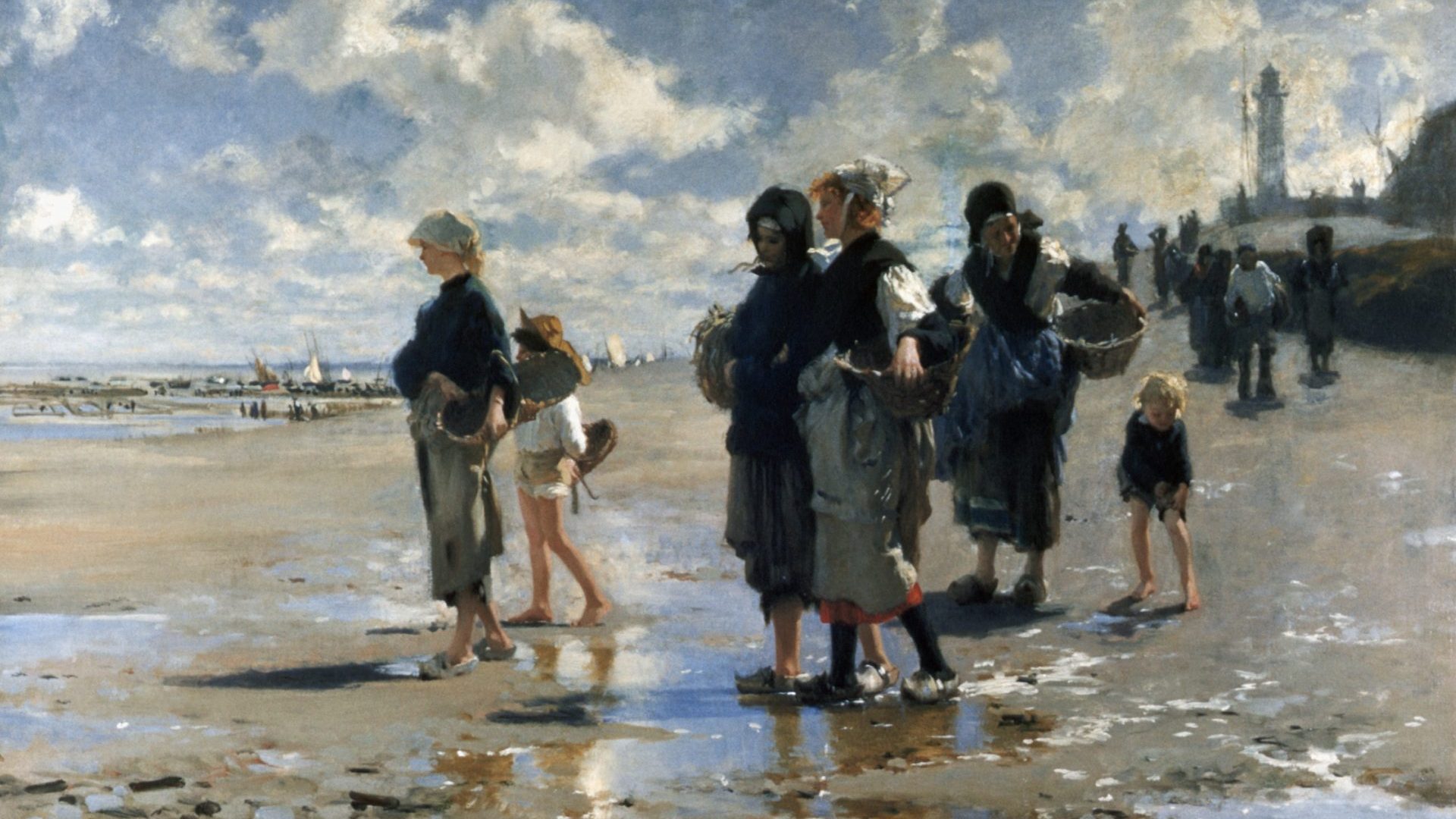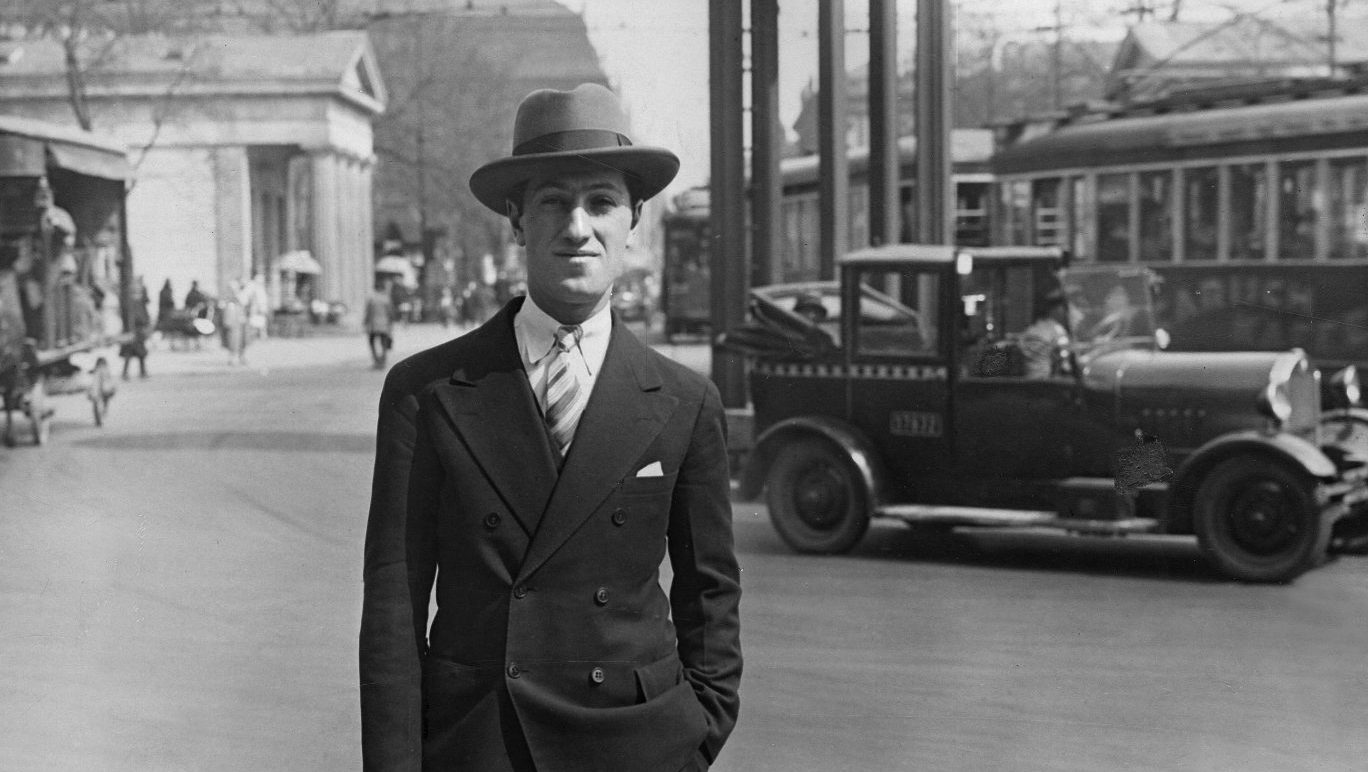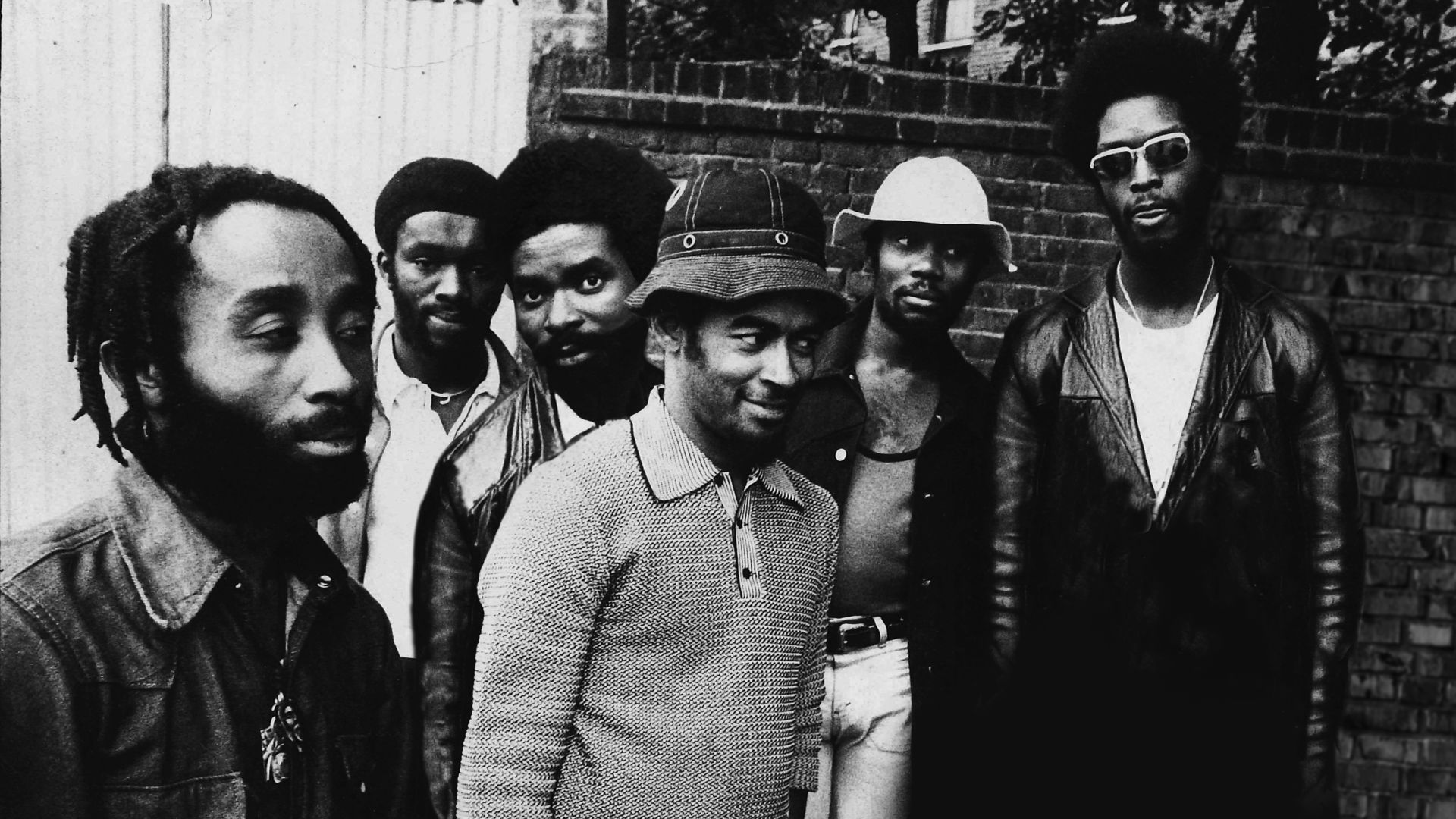There is a particular quality to the northern coasts of France. Undulating between rocky cliffs and huge, flat beaches that at low tide become vast shiny expanses reflecting the huge sky above them, the light has a particular tone that renders everything vivid and more intense than anywhere else, as if the air itself is a lens through which colours are enhanced and edges sharpened. Evening shadows seem longer there, stretching eastwards along smooth sands almost to eternity, “light subtler and swifter than lightning” as Algernon Charles Swinburne put it in his 1904 poem A Channel Passage.
There are the brilliant white beach huts with light blue trim at Wimereux, the rocky heights covered in scrubby grass overlooking Paimpol that inspired Pierre Loti’s wonderful novel The Iceland Fisherman. At night in the ancient, narrow streets of Dieppe, the light vanishes entirely, a darkness filling the town like liquid to reduce all the streetlamps and shopfronts to a dim glow. One half-expects the ghost of Oscar Wilde, who decamped there after his release from Reading Gaol, to emerge from a passageway at any moment. The wind blows harder there too, barrelling in off the sea as strong at Dunkirk in the east as at St Malo in the west, a salty rush skittering patterns across the sand, roaring around the ears and whipping away the breath. Even though the Channel has been criss-crossed for millennia, in every town along the Norman and Breton coasts it feels a little like you have reached the end of the world. There is a tangible sense that nobody passes through them, that there is nowhere else to go. Time seems to pass differently there, more slowly, maybe, or at least elongated. This is a coast un-paced rather than slow-paced, long views to a horizon ripe for contemplation beneath some of the biggest skies in Europe.
Writers have long been inspired by those vast heavens and distant horizons. Chateaubriand loved it so much he is buried on the island of Grand Bé, overlooking the Channel, facing the horizon. Anthony Doerr’s St Malo-set All The Light We Cannot See is a literary phenomenon recently adapted for the screen. Flaubert and Maupassant took inspiration from the northern coast of France, while Honoré de Balzac used several coastal locations in Normandy and Brittany in his novels. While most of these works have used the northern French coasts as an evocative setting, few have really sought to capture the essential feel of that liminal space between land and sea.
Perhaps the best evocation of the coast’s particular sense of place is in the debut novel from the Swiss author Rebecca Gisler. About Uncle is published this month in Jordan Stump’s English translation by the always excellent Peirene Press. Regular readers will know how much I try to bang the drum for quality European fiction in translation here, and Peirene Press is one of the reasons why: their books are always carefully selected, beautifully produced and there is never a dud among them.
Gisler has published poetry and short stories, but About Uncle is her first venture into long-form fiction. She wrote the book first in German, then rendered it into French to publish as D’Oncle. “The title, with the apostrophe ‘D’, reflects… the relationship I have with writing and with the French language, namely, a slightly incorrect side to my writing,” she said. “My mother tongue is French, which I only spoke at home so it was an oral and family language. I was born in Zurich, I learned to write in German and it was only five years ago that I started reading more in French and writing in the language.”
This filtering of the novel through different linguistic rhythms and structures lends the prose an almost otherworldly feel, preserved extremely well by Stump’s English translation.
About Uncle is set in a small village on the coast of Brittany and is narrated by the female half of twins who circumstances have placed in the same home as their bizarre, eccentric relative of the title. Uncle lives in what was the narrator’s grandparents’ home where they would spend childhood summers, a house passed on to Uncle on their death. For all of them there is a sense that the house on the coast is a refuge.
“Recently my uncle, my brother and I became what I would call involuntary housemates or a commune of idlers, or a congregation of do-nothings,” writes Gisler, “and we’re not complaining.” As the book begins Uncle – none of the characters are named – is a terrific comic creation. Short in stature but obese, his personal hygiene is best described as dubious and his table manners are appalling enough that his niece and nephew avoid being directly in front of him whenever he eats. Uncle suffers restricted movement thanks to a steel plate in his hip, and has a leg that won’t bend, but these do not stop him from obsessively monitoring the mole traps he sets in the garden or puttering around on a moped he refers to as “my hog”.
Yet for all his faults Uncle is adorable. Ogrish he may be, but he also has a childlike vulnerability. One nostalgic passage in which the narrator recalls childhood days on the beach notes how back then Uncle’s cigarette was “the one thing that distinguished us from each other, him the uncle and us the children, the real children”. Uncle retains a curious charm as we realise his entire world has reduced to the little white house smeared with ivy that “we used to pull down as a family activity, knowing there was no point, knowing the ivy would be back the next year, covering the walls with shadows and indelible stars” on a coast at the end of the world. He had worked for a while tending vegetables for the nuns of a nearby priory, but since giving that up has become so determined to keep the world at bay that even moles, burrowing in from outside the garden, are intrusion enough to rig up a colossal number of electronic traps whose beeping keeps the narrator and her brother awake during the night. The television has stopped working but nobody seems to mind, heightening the novel’s sense of contented isolation.
The trio come from a family of eccentrics. The twins’ grandfather retired as a handyman to become a prolific painter of pictures of naked women on the beach while wearing a white kaftan and a sailor’s cap with a pipe clenched between his teeth. Their harsh, short-tempered grandmother claimed to have been a body double for Brigitte Bardot. After a startlingly revolting opening scene reminiscent of Trainspotting, About Uncle soon settles down into a gentle, darkly comic rendering of this curious domestic ménage-à-trois. Very little happens, we follow Uncle and the twins through their daily routines, interspersed with recollections by the narrator of the days before Uncle became a cheerful, corpulent recluse. Yet as the book progresses, its plot meandering to nowhere in particular, there is a slow realisation of something darker at its core. Uncle’s regression to first the house and then his bedroom – apparently the result of a deathbed promise to his father – is, we deduce, the result of some kind of intense trauma. This is never explained. A brief anecdote informs us that Uncle once served in the army, a story in which he is the victim of humiliating bullying, but the injured hip and leg suggest scars mental and physical that have prompted Uncle to gradually draw in his boundaries as far as the walls of his squalid bedroom.
Eventually, Uncle does leave the house and briefly goes missing, an episode that only confirms that this likeable old relative is suffering, and the house at the end of France and the end of the world is his ultimate refuge. There is talk of ghosts in the house, but the narrator concludes that “Uncle is inhabited by other spirits”.
What makes About Uncle such an absorbing book is how it opens as what appears to be an absurd, two-dimensional comedy, but depth and nuance are slowly seeded into the characters. Sketched superficially at first, the inhabitants of the house needed to be significantly more than caricatures to carry a book that is far from plot-driven, and this is something Gisler pulls off almost without the reader noticing. The way she writes is a key component of that success. Single sentences occasionally seep over several pages without ever feeling forced or affected, while the multilingual filter of the book’s creation has helped the development of the house’s inhabitants.
“The character of the uncle already existed in several texts written in German,” Gisler has said, “but it was by changing the language in which I was writing that he really emerged. I was able to take more liberties with reality.”
Uncle proves ultimately elusive, the trauma at the core of his being remains closed off, yet he still embodies the coastal region where he has made his home. Uncle is as comfortable as he can be in that place that feels like the end of the world, a place where nobody passes through. He is vivid and contradictory, his depths obscured, his horizon distant, the gale of his personality blowing hard through the space around which he has forged his defences from foes real and imagined.




